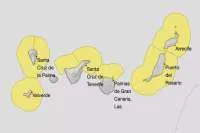Managing Gambling in a Digital World: Tools, Risks, and Choices
- 11-05-2025
- Business
- Sponsored Article
- Photo Credit: Freepik
The pace of technological change has always outstripped regulation, and nowhere is that more evident than in online gambling. What was once confined to bookmakers and physical casinos is now embedded in everyday devices. Access is immediate, boundaries are thin, and the experience has become almost frictionless.
This shift has brought convenience to many users, but it has also raised new questions, particularly about how to manage behaviour in an environment built to keep players engaged.
The Frictionless Risk
Gambling, in its modern form, is less about an event and more about a stream. Bets can be placed quickly, losses chased even faster, so what once required time and intention now happens in seconds. Traditional safeguards - social cues, opening hours, public settings - have little role online.
This isn't necessarily a flaw of the technology, but it is a feature of the format. And that feature can become a risk when there’s no deliberate pause built into the process.
The Emergence of Self-Regulation Tools
In response, several frameworks have been developed to help users moderate their gambling. These include deposit caps, time limits, and most notably, multi-operator self-exclusion schemes. In the UK, one of the best-known approaches involves a coordinated block on licensed platforms.
Individuals can opt out of all participating gambling websites for a chosen period. For many, this has become a practical form of harm reduction - a way to introduce friction back into a system designed to eliminate it. A concise breakdown of the UK's self-exclusion system for online gambling explains how it functions and what users can expect when opting in. The structure isn’t about punishment, it’s about design, about restoring control in an environment where the default settings don’t always favour it.
Non-GamStop Alternatives and the Broader Landscape
At the same time, the growth of Non GamStop casinos - platforms not affiliated with the UK’s exclusion system - complicates the landscape. These websites often operate under offshore licenses and continue to accept UK users, even those who have actively self-excluded.
Their existence highlights a gap between regulation and access. Self-exclusion can be effective within its system, but that system has limits, and users determined to bypass it will find options elsewhere, often with fewer protections and less oversight.
This is not to say that all NonGamStop sites are inherently unsafe. But they do represent a shift toward gambling without the constraints many national regulators have worked to implement, as it places more responsibility on the user and raises the stakes for informed decision-making.
Designing for Better Choices
It’s tempting to frame gambling behaviour as a question of willpower, but that oversimplifies a much more structural problem. The way platforms are built - how they deliver rewards, display losses, or make re-entry effortless - shapes outcomes in subtle but powerful ways.
Good regulation, then, isn’t just about limiting access; it’s about encouraging better design. That means clearer interfaces, mandatory breaks, and restrictions that can’t be reversed on a whim. Even outside regulatory systems, operators could adopt similar practices voluntarily. Whether they will remains an open question, but the blueprint already exists.
Final Thought
Technology has made gambling more accessible, and that’s unlikely to reverse. With a smartphone in every pocket and platforms operating around the clock, the decision to place a bet has become as easy as ordering a meal or sending a message. For many, this is simply a matter of convenience, but for others, especially those at risk of overuse, the constant availability introduces a quiet pressure to keep going.
At the same time, this digital shift also gives us tools that didn’t exist in the past - structured systems that can help users take control when the environment itself offers few natural pauses. In the end, it’s not about removing risk entirely - that’s never been possible, in gambling or life, it’s about making the risks visible, giving individuals tools that help them pause, and building systems that support good choices over quick ones.
In a digital world that rewards speed, control isn’t just a protective measure - it’s a form of freedom, and it may be the most valuable asset players have.
Gamble Responsibly: Gambling should be enjoyed as a form of entertainment, not a way to earn money. Always gamble within your financial means and set limits to stay in control. You must be 18 or older to participate in gambling activities. If you or someone you know has a gambling problem, seek help from organisations like FEJAR (Federación Española de Jugadores de Azar Rehabilitados) at www.fejar.org. Stay safe and gamble responsibly.


























































